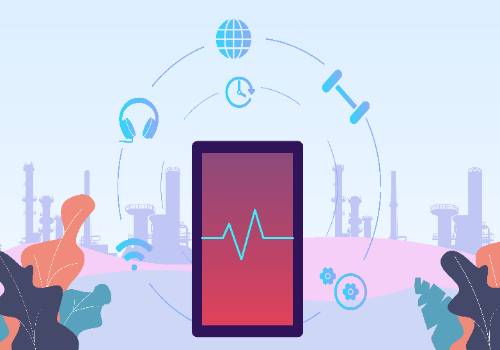Swipe left for English
 (资料图)
(资料图)
A Level作为一门高中课程有哪些优点?
为什么它能让学生最大程度地发挥自身优势和潜力?
学习A Level课程后只能去英国深造学习吗?
高中阶段的课程选择丰富多样,每种课程都特点鲜明、各有所长。当我们对比英国高中课程(A Level)和国际文凭(IB)时,会发现这两种课程有时候容易让人混淆,让人难以由表及里地深入理解。今天,我们将对A Level课程和IB课程进行对比分析,为您解答上述问题,并介绍惠灵顿杭州校区的培养目标。
惠灵顿杭州校区开设更能让我校学生充分发挥优势的A Level课程。A Level是英国、威尔士和北爱尔兰的十八岁学生须参加的资格考试,同时也是世界各国的国际学校使用最多的国际课程体系,也是在中国最流行的国际课程(在中国选择A Level课程的学生人数最多,远超IB和其他国际课程)。该课程中,学生通常选修三门课程。有的学生想学四门或更多的课程,但要知道,几乎所有高校的准入标准都是三门课程成绩,且所得成绩的质量远比所选课程的数量重要得多。修读三门课程能让学生专心致志地投入所选课程的学习,深入研究课题,为步入大学做好准备。A Level课程体系可谓包罗万象,它不设必修科目,所以能满足学生的个性化学习需求。例如,有意学医的学生可以选择生物、化学和其他一门课程(最常见的是选择数学)。
A Level的单科学习更有深度,学科知识引人入胜,重视专业技能和自主能力的培养,能让学生从小专攻所选领域,深度钻研相关的宝贵知识,为大学学习夯实基础,有利于学生的蓬勃发展。
“我非常喜欢A Level课程,因为它能让我全神贯注地学习我最喜欢的学科,那就是数学、艺术和经济学。”
惠灵顿杭州校区高中部的学生:Lydia
国际文凭(IB)课程面向全球学生而设,含六门基础学科领域的学科。学生需要修读科学、语言和人文科目,并完成三门必修课,即考查学生知识掌握程度的知识理论,含艺术、运动和志愿服务的创造、行动与服务,以及拓展论文。IB课程旨在为学生未来的深度学习夯实基础,培养学生的终身学习能力,实现个性化发展。
A Level和IB均为两年制课程,因严谨的课程体系而备受赞誉,得到世界各地高校的广泛认可。
细看这两种课程时,我们不难发现两者之间有更多区别。IB课程的各科目采取1至7分的评分体系,附加知识理论和拓展论文的3分,总分为45分;A Level 成绩分为A至U的六等级评分体系,其中A*为最优分。另外,A Level课程是重视学科内容的高学术性课程,而IB课程重点培养的是一种运用、推理和多角度学习知识的学习能力。
总而言之,IB课程强调培养学生的国际视野、批判性推理能力和知识广度;而A Level课程则注重学科学习的深度和专业性。两种课程体系都非常严谨,并得到了世界各地大学的广泛认可。
在惠灵顿杭州校区,我们还为学有余力的优秀学子提供备受知名高校推崇的独立研究项目——拓展项目资质(EPQ)课程。该课程旨在培养学生独立学习、调研、项目工作等能迁移至A Level其他科目的学习、大学学习和未来的职场中的技能。
点击图片,深入了解惠灵顿杭州校区的EPQ课程。
在惠灵顿杭州校区,我们秉承一以贯之的教育理念,致力于培养学生具备积极、慎思、独立、个性和包容的特质。这并非通过一个具体的项目或课程便能实现,而是得益于系统化的惠灵顿教育模式及其提供的丰富的学习机会。惠灵顿教育致力于培养学生在校时取得优异的学业表现,顺利步入理想的大学,在人生中取得长远的成功。这意味着学生十八岁毕业时的表现只是我们培养目标的一部分,并不是衡量学生成功与否的唯一标准。
惠灵顿杭州校区重视培养学生取得优异的学业表现,通过严谨的课程设置助力学生昂首迈向未来。万事开头难,学习A Level课程也不例外。我们专业素养过硬的全体教职员工都是学生坚强的后盾,将共同培养学生的独立能力,引导学生为大学生活和未来的人生做足准备。
点击图片,深入了解惠灵顿杭州校区的高校升学支持课程。
在2022学年中,惠灵顿(中国)旗下天津惠灵顿学校的升学成绩再创新高,64%的学生在A Level考试中取得A*/A,包含牛津大学、剑桥大学及常春藤名校等世界顶尖院校的offer纷至沓来。相信在不久的将来,惠灵顿杭州校区的学子们也将交出优异答卷。让我们拭目以待吧!
向右滑动,查看中文内容
What are the advantages of learning A Levels?
Why do we believe that it helps to maximise the advantages and potential of our pupils?
Is it true that only A Levels can only get pupils into UK universities?
When looking closely into the multiple pathways through high school, sixth form or senior school, we can find that each is with their own merits and distinctive features. However, understanding the complexity of A Level and IB Diploma courses can be challenging and often full of misconceptions for parents. This article will briefly compare A Level and IB diplomas, provide answers to the above questions and set out the aim for pupils joining Wellington College Hangzhou.
We offer the A Level curriculum as this is more suited to our pupils’ strengths. The A Level is the qualification taken by eighteen-year-old students in England, Wales and Northern Ireland and the most common qualification in international schools worldwide. It is also the most popular international curriculum in China (the number of pupils in China studying A Levels is far more than those studying IB and other international curricula). Pupils typically study A Levels in three subjects. Some pupils may be tempted to study four or more subjects, however, it is worth bearing in mind that almost all universities will give offers based on three subjects, where the quality of the grades is given far more importance than the quantity of subjects taken. This allows pupils to specialise and study subjects deeply and genuinely prepare for the transition to university. For instance, pupils seeking to read medicine would typically study biology, chemistry, and one other subject, most commonly mathematics.,. The wide range of subjects on offer at A Level is designed to allow for the personalisation of learning, especially as there are no compulsory subjects.
The A Level course has engaging subject content and specialist skills development. It allows pupils to specialise in their chosen fields from an early age and focus on gaining the depth of knowledge invaluable as a foundation for university education and for pupils to flourish in the future.
I enjoy learning A Levels as it allows me to focus on the subjects I most enjoy - Maths, Art and Economics.
Lydia
a sixth form student
at Wellington College Hangzhou
The International Baccalaureate (IB) diploma was developed as an authentically international qualification. IB diploma students take six subjects, which must include a mix of science, languages and humanities, plus three other elements: theory of knowledge, which looks at how we know what we know; creativity, activity, service, which involves artistic, sporting and voluntary work, and an extended essay. The IB diploma aims to establish a broad foundation for further learning and promote an approach to learning that develops the pupil as an individual.
Both A Level and IB diplomas are two-year programmes acclaimed for their rigour, and both serve as to provide high-value entry to universities worldwide.
When deep diving into each course, other differences are apparent. The IB diploma is assessed using a 1 to 7 scale for each subject studied, and a total score out of 45 is used to judge the overall performance. Alternatively, A Level uses a system of grades, with A* the highest. Furthermore, A Levels are distinctly academic and emphasise the subject matter, whilst IB promotes a way of learning that encourages application, reasoning and engaging with content from multiple perspectives.
In conclusion, it may be summarised that the IB diploma is global in outlook, promotes critical reasoning and emphasises breadth of study. A Levels offer greater depth and specialisation. Both are rigorous and valued by leading universities around the world.
At Wellington College Hangzhou, we also offer EPQ, the Extended Project Qualification, for outstanding pupils who want to stretch their learning. It is an independent research project highly recommended by reputed higher education institutions. The EPQ is designed to develop pupils’ skills of independent learning, research and project work that are transferrable to other subjects at A Level and the demands of university and the professional world.
Click the picture below to learn more about the EPQ offered at Wellington College Hangzhou.
Throughout the Wellington College Hangzhou campus, the focus is for pupils to develop their identity: inspired, intellectual, independent, individual and inclusive. The development of the five aspects of the Wellington identity is not a consequence of a specific programme or qualification. Instead, it is the product of a Wellington education and the learning and development opportunities that it affords. Preparing pupils for success in life at college, university and beyond means that the excellent qualifications achieved at 18 are only a part of the product of education at Wellington College Hangzhou and not the only measure used to gauge success.
Excellent examination results are an expectation at Wellington College Hangzhou. The rigorous course offered at the school will help the pupils to walk towards success in their future. The start of A Level studies may be challenging, but all our experienced staff are here to support pupils and help them build their independence in preparation for university and beyond.
Click the picture below to learn more about the university pathway support offered at Wellington College Hangzhou.
In 2022, pupils at Wellington College Tianjin obtained impressive university offers from Oxbridge and Ivy League schools. 64% of their pupils achieved A* or A in A Level exams. We are also confident that our pupils at Wellington College Hangzhou campus will achieve academic excellence in the near future.




















 营业执照公示信息
营业执照公示信息